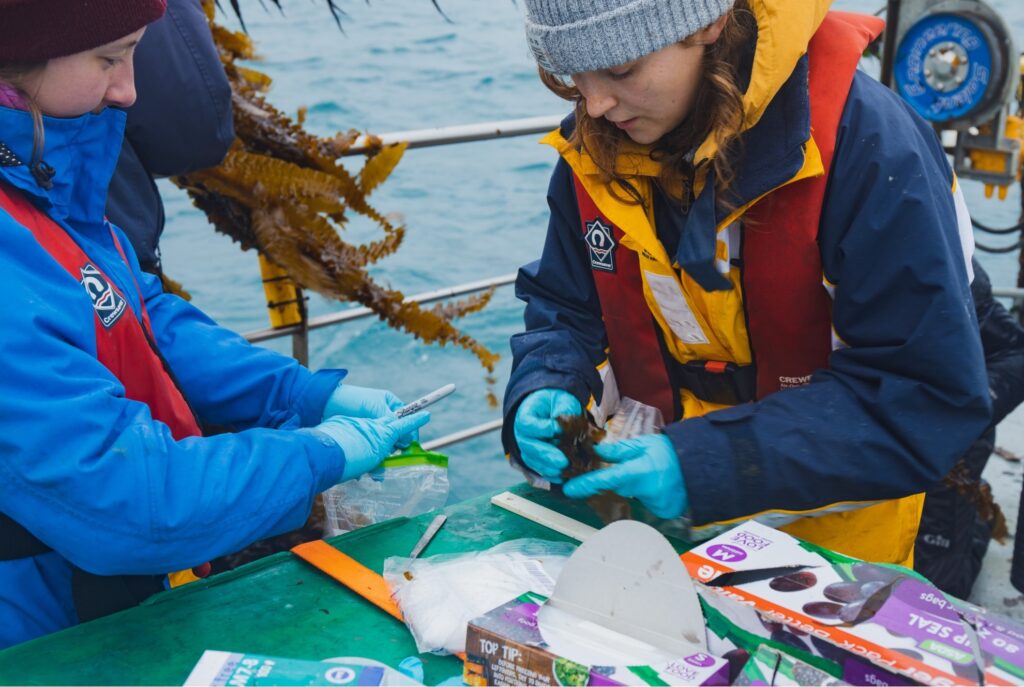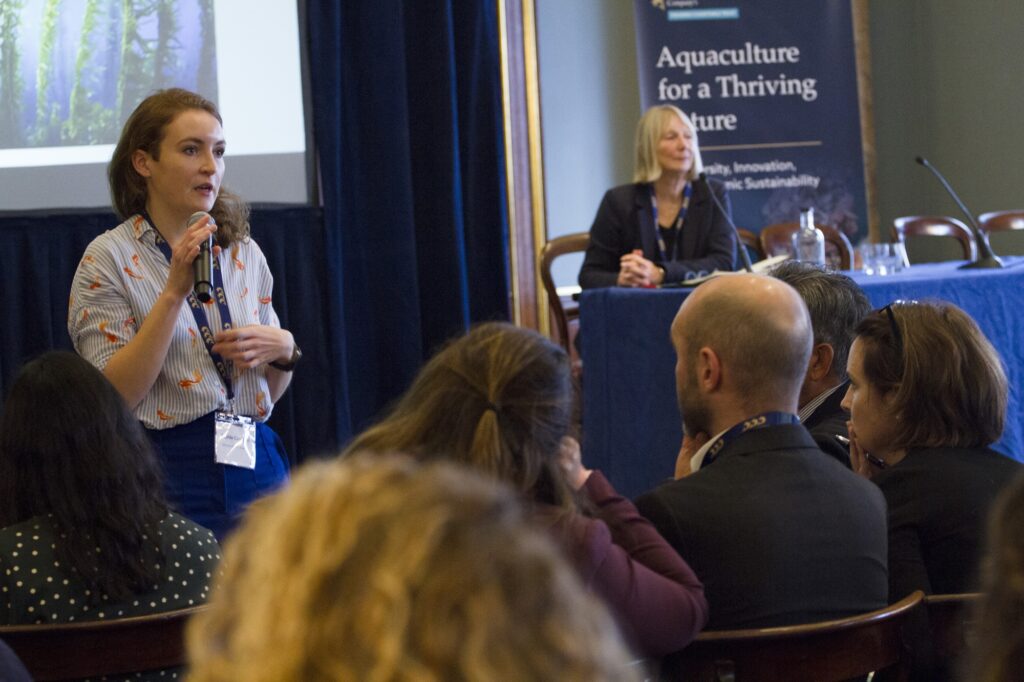

New research published by lead author Sophie Corrigan from the University of Exeter and the Marine Biological Association demonstrates that mussel and seaweed farms provide new structured habitat to fish species – including high numbers of commercial fish species. The work, published in the scientific journal of Aquaculture Environment Interactions, shows the biodiversity benefits that farming low tropic species can bring to otherwise structure-less or degraded inshore habitats.

Her work shows mussel farms deliver the highest benefits to fishes throughout the water column and in different size classes, providing relatively stable habitats with plentiful food. Seaweed farming areas provided temporary habitats due to their shorter harvesting schedules. However, while seaweed was being cultivated there was still a marked increase in fish abundance and diversity compared to the non-farmed reference areas of the sea. The research identified several commercially and ecologically important fish species that were using the farmed areas, such as mackerel, pollack, and greater sand eels, with diet analysis revealing that farms may provide important new feeding grounds for these species.
She said: “Given the degradation of natural habitats around our coastlines, the decline of many important fish stocks, and the clear need for increased sustainable food systems, these results provide important evidence about how shellfish and seaweed farms could be used as nature-based solutions if appropriately managed. The increase in fish abundance within these farms will likely have spill-over benefits to other marine users including fisheries, which may help to facilitate the inclusion of sustainable aquaculture within marine planning.”

Sophie, who was until recently co-funded by the FCFCT to undertake her PhD at Exeter University, and who featured among speakers at last years’ Aquaculture conference at Fishmongers’ Hall, has now moved upwards and onwards, joining London’s Natural History Museum to contribute at the science policy interface of the rapidly expanding seaweed farming horizon.